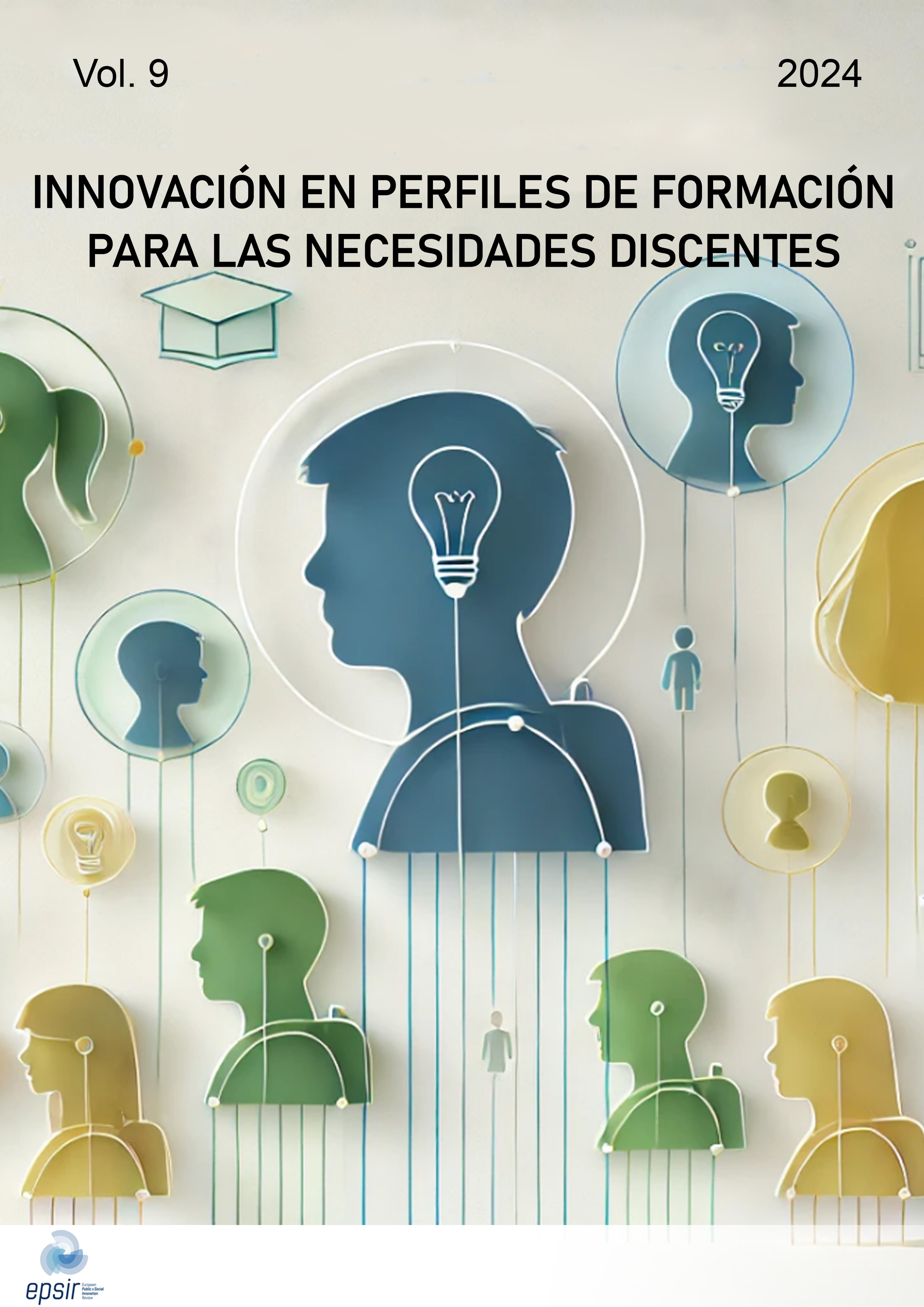Innovation in training profiles for the needs of learners
DOI:
https://doi.org/10.31637/epsir-2024-1732Keywords:
Pedagogical innovation, Teacher training, Inclusive education, Educational assessment, Collaborative learningAbstract
This monograph explores how the educational transformation of the 21st century, driven by technological advances and new social demands, is redefining teaching profiles. It focuses on pedagogical innovation, especially in the training of foreign language teachers (ELE), analyzing how educational methodologies and technologies are adapting teaching to the needs of contemporary students. In addition, it addresses the importance of more inclusive and flexible assessments, which move the focus away from standardized tests and promote a continuous and dynamic approach. It highlights the relevance of teaching competence in specific contexts, such as early childhood and higher education, and the value of approaches such as project-based and collaborative learning. The COVID-19 pandemic is another key topic, as it forced a rethinking of traditional methodologies and accelerated the implementation of distance learning. It also discusses how teacher education should promote inclusion and diversity, preparing future educators to face global challenges. In summary, the monograph invites reflection on how innovative teacher profiles can transform the educational system, emphasizing creative methodologies, inclusive assessment and adaptability to change.
Downloads
References
Bonilla-Guachamín, J. A. (2020). Las dos caras de la educación en el COVID-19. CienciAmérica, 9(2), 89-98. https://doi.org/10.33210/ca.v9i2.294 DOI: https://doi.org/10.33210/ca.v9i2.294
Daza, C. G. (2021). Las competencias docentes en el siglo XXI de cara a la virtualidad de la educación con ocasión del COVID-19. Boletín Redipe, 10(5), 177-188. https://revista.redipe.org/index.php/1/article/view/1295 DOI: https://doi.org/10.36260/rbr.v10i5.1295
Marcelo, C., & Zapata, M. (2008). Cuestionario para la evaluación. "Evaluación de la calidad para programas completos de formación docente a través de estrategias de aprendizaje abierto y a distancia". Metodología de uso y descripción de indicadores. Revista de Educación a Distancia (RED). https://revistas.um.es/red/article/view/125191
Murillo Parra, Luisa Dolores, et al. "Estrategias educativas inclusivas y su relación con la autoeficacia de docentes en formación." Actualidades investigativas en educación 20.1 (2020): 168-195. https://tinyurl.com/25wfh25x DOI: https://doi.org/10.15517/aie.v20i1.40060
Salinas Ibáñez, J. (2008). Innovación educativa y uso de las TIC. Universidad Internacional de Andalucía. http://hdl.handle.net/10334/3647

Downloads
Published
How to Cite
Issue
Section
License
Copyright (c) 2024 Alejandro Fernández Pacheco-García, Inmaculada Concepción Orozco, Virginia Dasí Fernández

This work is licensed under a Creative Commons Attribution-NonCommercial-NoDerivatives 4.0 International License.
Authors who publish with this journal agree to the following terms:- Authors retain copyright and grant the journal right of first publication with the work simultaneously licensed under Creative Commons Non Commercial, No Derivatives Attribution 4.0. International (CC BY-NC-ND 4.0.), that allows others to share the work with an acknowledgement of the work's authorship and initial publication in this journal.
- Authors are able to enter into separate, additional contractual arrangements for the non-exclusive distribution of the journal's published version of the work (e.g., post it to an institutional repository or publish it in a book), with an acknowledgement of its initial publication in this journal.
- Authors are permitted and encouraged to post their work online (e.g., in institutional repositories or on their website) prior to and during the submission process, as it can lead to productive exchanges, as well as earlier and greater citation of published work (See The Effect of Open Access).


